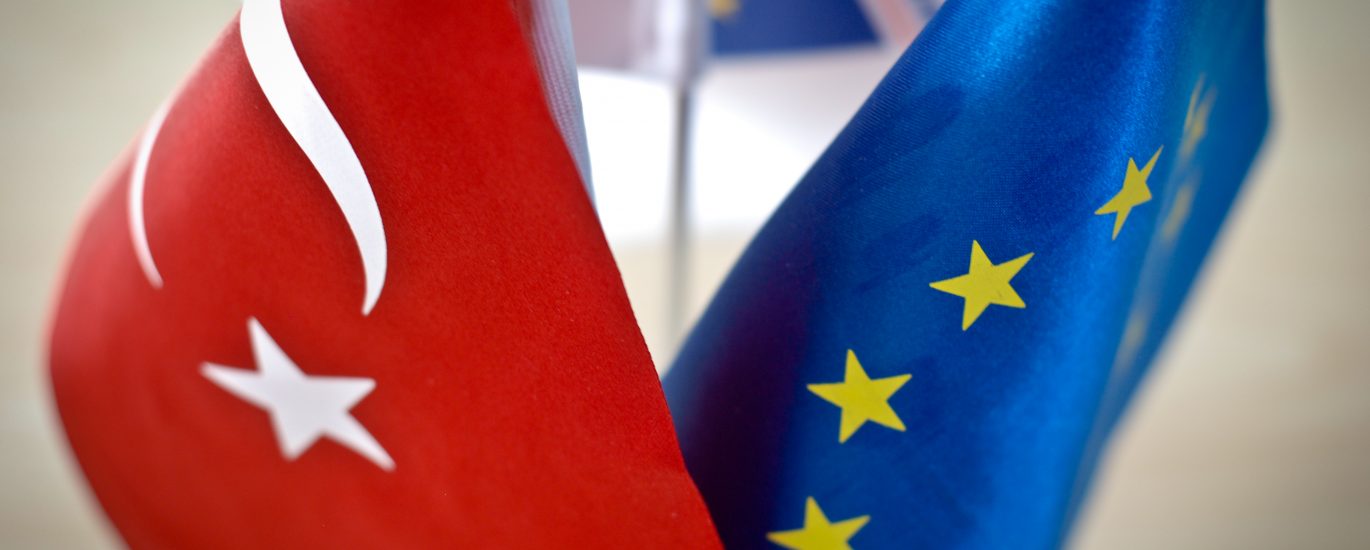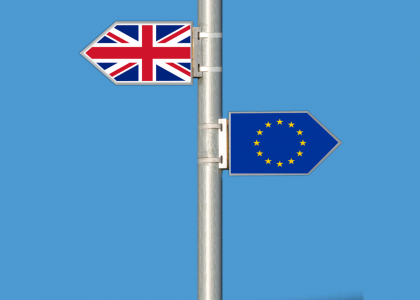Will Turkey ever join the EU? Syed M Hamza considers the likelihood…
During the Brexit debate, a controversial poster used by the Vote Leave campaign, portrayed a British passport as a gate with footsteps approaching and claimed, “Turkey (population 76 million) is joining the EU. Vote Leave, take back control”. However, beyond all the scaremongering, Turkey’s accession to the EU appears highly improbable.
Turkey entered into a Customs Union with the EU in 1995, which removed custom duties for goods and provided for a “common external tariff”. According to the European Commission, Turkey had become the EU’s 7th biggest trade partner in 2022. In 2005, formal negotiations for Turkey’s accession to the EU started. Turkey is seeking EU membership to simulate its economy, as its economic interests lie more with the EU than with Russia or the Gulf, and to strengthen its foreign policy. However, a myriad of challenges will prevent Turkey from becoming part of the EU – at least for the foreseeable future.
Democratic Backsliding in Turkey
The Copenhagen criteria that every candidate country needs to fulfill in order to attain EU membership includes values such as the rule of law, democracy, human rights and respect for minorities. According to a report by the European commission, ‘there are serious deficiencies in the functioning of Turkey’s democratic institutions’. In 2018, Turkish President Recep Tayyip Erdoğan introduced ‘administrative measures’ to transition Turkey’s parliamentary system into a presidential one, curtailing the ability of the Turkish parliament to legislate. Such backsliding in democratic values can only pose as a challenge for Turkey’s accession to the EU.
Human Rights Abuses
In 2018, French President Emmanuel Macron informed the Turkish President Erdogan that “there is no chance of progress” for Turkey to join the EU due to disagreements over human rights. Human rights abuses, including inhuman and degrading treatment in removal centers for asylum seekers, continue to occur in Turkey. According to Amnesty International, human rights defenders continue to face baseless investigations and the Turkish government has also amended its laws to restrict online freedom of expression. The Turkish government’s authority is also challenged by the Kurdish minority, which populates the border region with Northern Iraq. To counter Kurdish power, the Turkish government has used repressive measures described as a ‘crackdown on Kurdish opposition’. As such actions are in breach of the ‘Copenhagen criteria’, human rights abuses and mistreatment of minorities will remain significant hurdles for Turkey’s membership to the EU. Furthermore, in 2020, Turkey rejected the recommendations of the UN Human Rights Council pertaining to human rights which may be viewed as Turkey’s unwillingness to promote freedom and human rights.
Ideological Divide
Differences in ideologies between the European and Turkish leaders will also act as a huge obstacle for Turkey’s accession to the EU. European leaders hold the view that in addition to fulfilling the ‘Copenhagen Criteria’, Turkey also needs to align with the common ‘European identity project’. According to academic scholar Ziya Öniş, former leaders in Europe such as Sarkozy and Merkel believe that ‘Turkey is not a natural insider in a culturally-bounded vision of Europe and the associated deep integration process’. Current EU leaders including French President Emmanuel Macron also view Turkey’s accession to the EU with skepticism. On the other hand, Turkey has shown a tilt towards Russia in Russia – Ukraine conflict by not closing its airspace for Russia in addition to being highly critical of Israel during the Israel – Gaza war. This does not align with policies of the EU as the EU stands in solidarity with Ukraine and Israel in their respective conflicts. Turkey’s EU membership is also met with suspicion by the Turkish military and bureaucracy that hold the opinion that Turkey’s accession to the EU will lead to the erosion of Turkish national ideology and sovereignty. Furthermore, the rise in Islamophobia and extremism in Europe is also a factor that makes the accession much more complicated as several EU leaders are ambivalent about Turkey’s large Muslim population.
Turkish Migration
The Vote leave campaign that used the poster with the caption ‘Turkey (population 76 million) is joining the EU’ during the Brexit campaign claimed that once Turkey joins the EU, its citizens would be a threat to ‘national security, as well as to public services’. Academic scholars hold the opinion that the question of Turkey’s accession to the EU, largely conflated with the question of migrations, impacted the verdict of Britain to leave the EU to ‘some degree or another’. Current EU member states’ concerns over migration from Turkey may be even more prevalent considering Turkey’s population is now approximately 85 million people. Turkey also hosts over 4 million refugees which might pose another challenge pertaining to migration and border management of the EU.
Besides the question of migrations, if Turkey joins the EU, it will represent 13.6 % population of the EU and have a ‘weighted vote in the Council of the EU’ – the institution where member stqtes are represented – equivalent to the one of Germany and France, which several current member states view with suspicion.
The cost of Turkish accession
In the agriculture sector Turkish famers are more productive, in comparison to their Southern European counterparts in terms of yields per hectare. If Turkey becomes an EU member, its farming sector would be eligible for subsidies from the Common Agricultural Policy, which represents a large part of the EU budget. In addition to increased competition in the agricultural market, Turkey would also have access to EU funds such as the Structural funds and Cohesion fund for poorer regions and infrastructure development. This may cause further concerns and worries among net contributors to the EU budget. Inclusion of Turkey, which is considered to be a ‘middle income country’, would also lead to increased economic disparities in the EU.
Deteriorating democratic values and human rights abuses in Turkey but also a growing ideological divide between the European and Turkish leaders, as well as Turkey’s large population are all factors that make Turkey’s EU membership unlikely. Even if Turkish authorities improved the standard of human rights, the prospect of Turkey having as much weight in the EU as other large member states, due to its large population, would continue to act as a deterrent for Turkey’s EU membership, especially given the growing ideological divide between the EU and Turkish leaders. However, just as it seems that this debate cannot be extended further, Turkish President Tayyip Erdogan whilst linking Sweden’s membership of NATO to Turkey’s EU membership said in 2022, ‘First, come and open the way for Turkey at the European Union and then we will open the way for Sweden, just as we did for Finland’. Such statements suggest that debate pertaining to Turkey’s EU accession might not be completely over.
About the author: Syed M Hamza is a second-year International Relations student at the University of East Anglia (UEA). He is also the Global Editor for UEA’s Concrete newspaper.
Photo credit: Ian Usher






